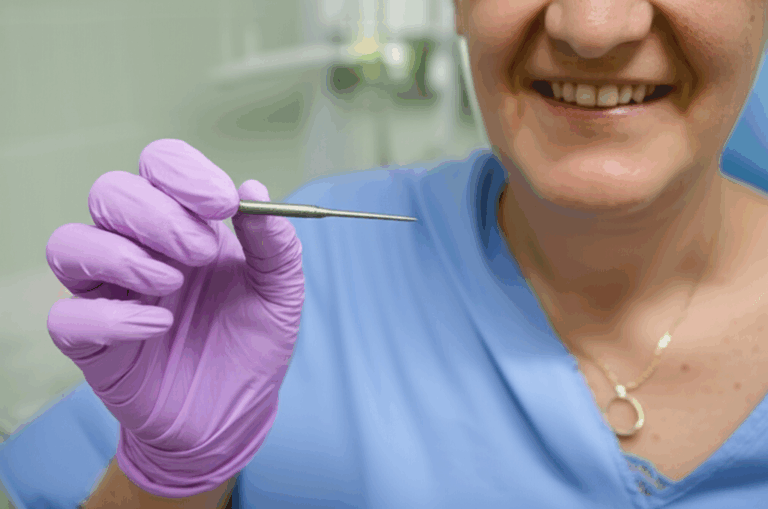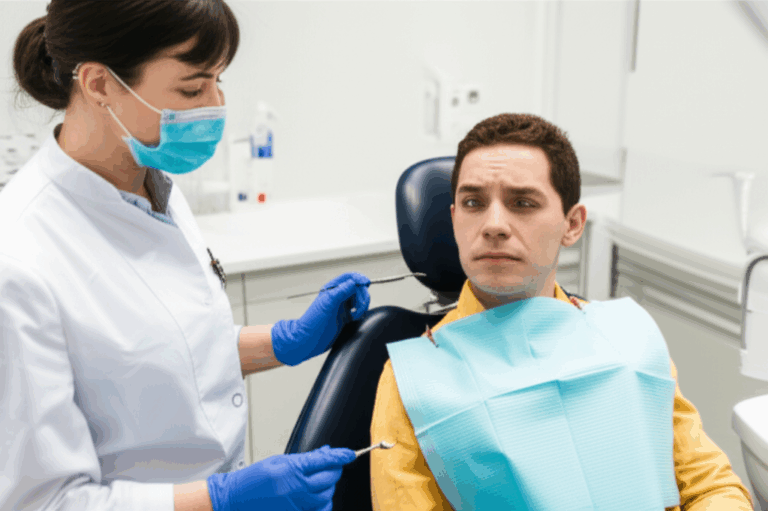
How to Become a Dental Nurse/Assistant: My Personal Step-by-Step Guide
Table of Contents
Introduction: What is a Dental Nurse/Assistant?
When I started thinking about healthcare jobs, I liked the idea of taking care of people without always having to be the one in charge. Dental nurses—or dental assistants, like they say in the US and Canada—do that. What really shocked me is just how important dental nurses are; they’re the people who keep everything running the way it should.
If you’ve ever visited the dentist and felt someone calm you down or seen everything ready at the right time, you’ve probably watched a dental nurse or assistant work. They mix being friendly, good with their hands, and super organized. It’s more than just cleaning tools or answering the phone. This is a job where you’ll learn a lot and help people more than you maybe thought you could.
So, why did I pick this job? It felt safe, with jobs always popping up, and I wanted something where I could grow and build trust with patients. Plus, good dental care is always needed, so I knew I’d be working for a long time. And in case you’re unsure: “dental nurse” is the word used in the UK and some other countries, while “dental assistant” is the word in the US and Canada. But most days, you’ll do almost the same work.
Step 1: Understand the Role and Responsibilities
When I started my training, the first week was wild—it’s not just about giving tools to the dentist. Here’s what really happens.
Core Duties of a Dental Nurse/Assistant
No two days are the same. Here’s the kind of things you can expect:
- Help the dentist at the chair: Most of my day was bringing in patients, making sure they’re alright, getting things ready, and handing tools to the dentist. Sometimes I used suction so everything stayed dry, or I helped take impressions of teeth.
- Clean up and keep things safe: Cleaning isn’t just nice—it’s a must. I cleaned tools, chairs, and all the areas the patients touched.
- Talk with patients: Some people hate the dentist. I learned to explain things simply, help kids stop being scared, and tell folks how to care for their teeth after their visit.
- Take X-rays: Some offices let you do this with the right training. I learned to use new digital machines and how to do X-rays safely.
- Paperwork and phones: Some of my time was at the desk. I made appointments, fixed up files, called insurance, and stayed organized.
- Keep track of supplies: Running out of stuff at the wrong time is really bad, so I checked supplies and ordered what we were about to run out of.
- Follow safety rules: I watched all the safety signs and rules, like those from OSHA or the UK’s CQC, so everyone would be protected.
Essential Skills and Qualities for Success
Some people think this job is just grabbing things and giving them to the dentist. That’s wrong. Here’s what you really need:
- Be good at talking and listening: You’re the first and last person many patients see, and your smile and way with words help them a lot.
- Quick hands and careful eyes: Some tools are tiny and sharp. You need to be careful, quick, and pay attention the whole time.
- Kind, patient, and polite: Sometimes people are in pain, scared, or even a little rude. You have to stay cool and caring.
- Stay organized and manage your time: Appointments can run one after another. I had to be quick and not lose track.
- Work well in a group and roll with changes: Dental offices work like a team. You need to get along with dentists, hygienists, and the front desk, and be ready when things go different than planned.
Step 2: Meet the Educational Requirements & Qualifications
When I started, I was confused by all the ways to become a dental nurse. Here’s what I figured out:
Foundational Prerequisites
- High School Diploma or GED: You need to finish high school or get a GED. I liked having some science and health classes—it made things easier for me.
- Helpful subjects: Biology, health, and math are your best friends if you’re still picking classes.
Training Pathways (Region-Specific)
Where you live changes things—so here are the main ways in the US and UK:
USA (Dental Assistant)
- Certificate/Diploma Programs: Most people go to a dental assisting program. They take about 9-12 months and have classes and practice in real offices.
- Associate’s Degree: Some schools give you a two-year associate’s degree. You get more classes and can use cool gear—some programs are even linked with a digital dental lab.
- Learn on the job: Some offices will train you without a special degree, but if you want to be paid more and have better jobs, some schooling helps a lot.
UK (Dental Nurse)
- National Diploma in Dental Nursing: I did the NEBDN program. You learn online and at work, then take some tests and show your work.
- Apprenticeship (Level 3): If you like hands-on work, apprenticeships pay you while you learn.
- Vocational Courses: These give you both classroom and real office time. Great if you want a mix.
Step 3: Gain Practical Experience
You won’t learn it all from a book. My first day at the dental office taught me more than a month of classes!
Clinical Placements & Externships
Most schools and programs put you in a real office for practice. I learned:
- How to use my skills: Passing tools, cleaning, helping people—practice is how I got it down.
- How offices are different: Every place was a little different, and I learned what kind of place I wanted to work in later.
Volunteer Work or Shadowing
Before I even started training, I spent some afternoons watching a dental nurse. It helped me find out if I’d like the job and meet people who could give me advice.
Step 4: Obtain Certification and Registration
You can’t skip this step. Paperwork is as important as your skills in this field.
Certification Process (USA)
I took and passed the Dental Assisting National Board (DANB) exam to be a Certified Dental Assistant (CDA). Here’s why it matters:
- What states want: Some places won’t let you do X-rays or bigger jobs unless you’re certified.
- Get better jobs: Having certification means you get more interesting work and better pay.
Professional Registration (UK)
In the UK, you must be registered with the General Dental Council (GDC) to work legally. I sent in my training proofs and a clear record.
- Keep learning: To stay registered, you need to take classes and workshops every year. I do these online and in person.
Step 5: Explore Career Opportunities & Progression
Where can you work as a dental nurse or assistant? I found lots of choices while looking for my first job:
Where Do Dental Nurses/Assistants Work?
- Normal dentist offices: Most jobs are here—small, big, NHS, or private clinics.
- Specialist dentist offices: I worked in orthodontics for a while. Some focus on kids, surgery, or gum care.
- Hospitals and schools: Some work in big clinics, schools, or with mobile teams.
- In dental making labs: A few go on to help make dental products, like at a dental ceramics lab.
Career Advancement Paths
You can move up and do new things in this field.
- Team Leader or Office Manager: You watch over the other nurses, help run the office, and do hiring.
- Specialist Nurse: You can get more training for things like braces, surgery, or working with special patients.
- Hygienist or Dental Therapist: With more classes and exams, you can do deeper cleanings and see your own patients.
- Teaching: You can show new students how to do the job.
- Sales or Industry Roles: I saw some nurses move to jobs at dental implant laboratories and dental supply companies. Their background really helps in these jobs.
Salary & Job Outlook for Dental Nurses/Assistants
When I was thinking about this job, I checked pay and how easy it would be to get hired:
Average Salary Ranges
- USA: The usual pay for dental assistants is about $44,820 per year. New jobs pay less, but you get more money with more skills and certificates.
- UK: NHS dental nurses can make between £24,000 – £32,000 a year. Private offices or bosses make more. Apprentices start with less and get more as they learn.
Job Market Demand & Growth Projections
- Steady Growth: The field is growing by about 7% through 2032, so jobs are easy to find.
- All Over: I’ve seen open jobs in big cities, small towns, and anywhere else. There’s more work in offices using new tools such as a 3d dental lab.
Is This the Right Career for You? Key Considerations
Before I got serious, I thought a lot about what this job would be like. Here’s what I figured out:
Good things
- Feel-good work: You see your help make a difference for patients.
- Steady job: People always need their teeth looked after.
- Chance to move up: There are places to go if you want.
- Learn new things: You get to know lots about bodies, medicines, X-rays, and how offices run.
Not so good
- Tiring: You stand a lot, move fast, and have to watch your posture.
- Germs: You clean and stay safe, but there’s always some risk.
- Handling scared people: You help people who are nervous or in pain, and it can be rough some days.
If you’re still not sure, try to shadow someone or volunteer like I did. It helped me see I liked it. It’s good for people who care, notice things, and handle a bit of stress.
Conclusion: Start Your Journey in Dental Healthcare
Looking back, I’m glad I picked this path. It’s more than a regular job—it’s a career full of learning and making a difference. If you’re curious, willing to put in effort, and want to help, you’ll fit in. Do some research, try shadowing, or ask a dental office for advice. There’s always a spot for someone new and caring.
Frequently Asked Questions (FAQs)
What’s the difference between a dental nurse and a dental hygienist?
A dental nurse (or assistant) helps the dentist and does things like passing tools, cleaning, and paperwork. A hygienist does more teeth cleaning, checks for problems, and teaches people about brushing and flossing, usually working more by themselves.
How long does it take to become a dental nurse/assistant?
Most people finish in about a year, with a certificate, diploma, or apprenticeship. If part-time, it can take one and a half to two years.
Can I become a dental nurse/assistant without a college degree?
Yes, you don’t need a four-year college degree. You need to finish high school and a training program.
What are the highest-paying dental nurse/assistant specialties?
Jobs with braces (orthodontics), surgery, or implants pay the most. If you get more certificates, you’ll get more money too.
Is dental nursing/assisting stressful?
It can be sometimes—lots of work, grumpy or scared patients, and it’s hard on your back and feet. But you get better at it over time, and helping people makes it worth it.
That’s my story and what I wish I knew at the beginning. If you want to be part of a dental team, go for it! There’s always room for another pair of helping hands.







